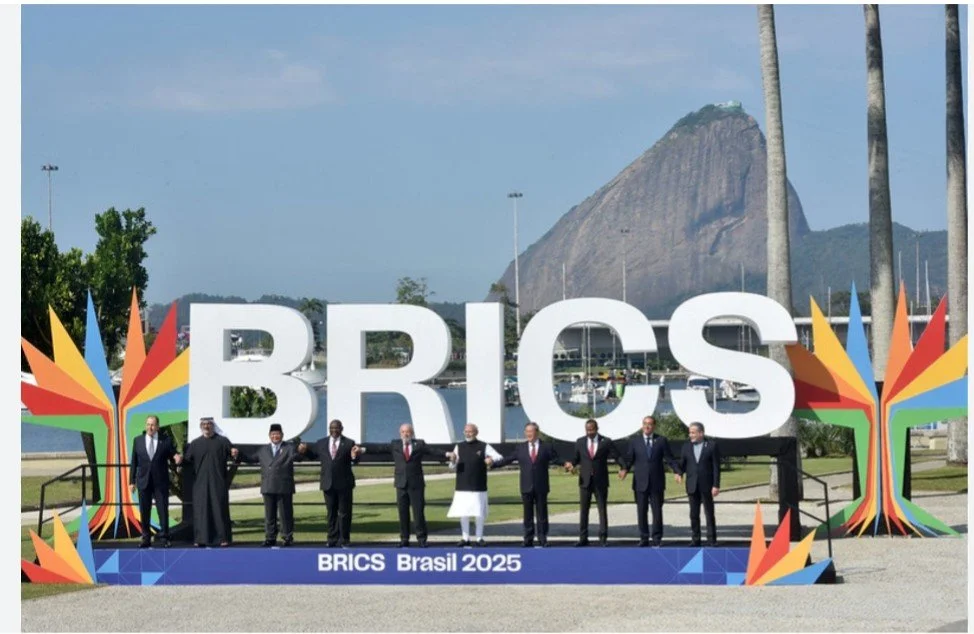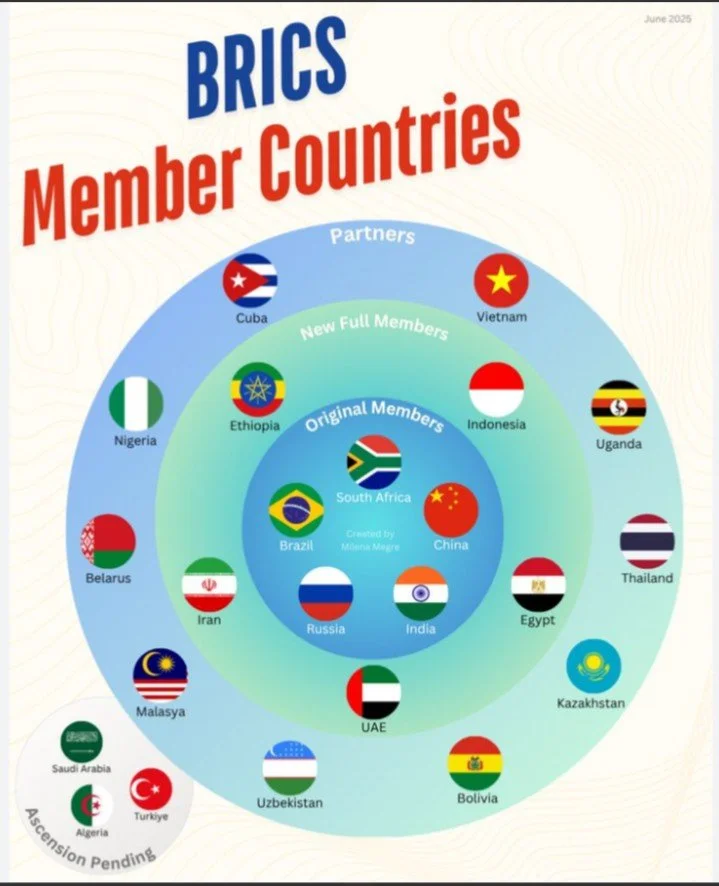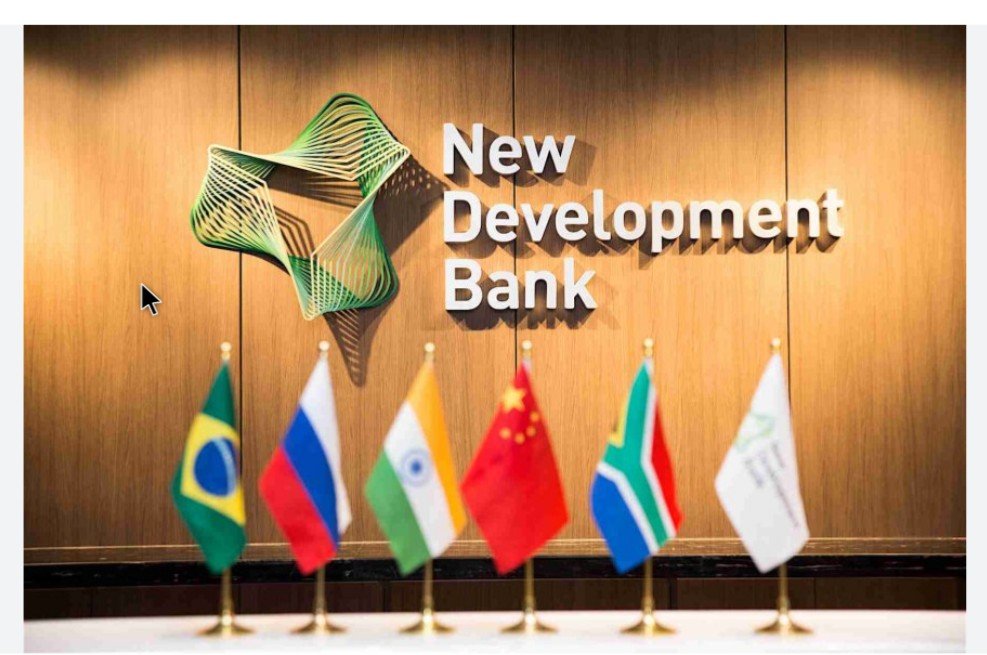Opinion: BRICS, Democracy, Anti-Corruption and Sustainability.
BRICS 17th Summit in Rio de Janeiro Brazil 2025. Photo from Google Images.
The relationship between democracy, anti-corruption and the development of sustainability markets in society is a question for academic research in various locations on the globe.
How to measure democracy and the relationship to anti-corruption is an empirical equation which was deepened in many research with regards to the development of societies. The additional piece of sustainability of markets, whether it is economic market or development organizational within the society, is important in our days specifically to the new era of alignments in the world.
I believe that we are witnessing a new world order where different groups of nations are gathering together to create blocs of forces. Those national blocs combined partnerships of economic development, organizational together to promote sustainability, equality, and power. The quality of those organizational gatherings are the core for the new future.
As fundamental establishment, it is paramount that the national blocs of forces will be dependent and built on the components of democracy, anti-corruption and sustainability development of markets and society. The measurements of democracy are defined as a system of government where power is held by the people and exercised through representatives elected in a democracy election where each individual has a vote and minority rights are protected. The election of government in democracy must comply with the government governance of elections which include the principles of governance: supervision, transparency, accountability and enforcement. For the citizens to participate in the process of voting, it is important that each citizen will have the power equally to participate in the process where its beliefs and values are being represented. Civil liberty and human rights are in light of any democracy and as legal formation for constitutions as a core for the executive, judicial and legislative institutions of that nation.
The components of anti-corruption are built within the society which would like to preserve its democracy. A healthy society, which protects the citizens and the minority rights, anti-corruption must be a paramount goal established in its constitution. Anti-corruption in its definition prevents officers in power from betraying the power that was given to them by the citizens and by the elections for doing justice and rights. Anti-corruption can have different faces. When it spills into different levels of society, it prevents the development of sustainability of that society. The measurements for the anti-corruption equally can be viewed in the measurements of democracy. There are important measurements of government governance, as well as corporate governance, and data governance. Those measurements are partially evaluated by empirical research which includes the consideration of bias, methodology choices, dynamic of the society that is being measured, and the availability of data.
I believe in a sense that measurements of democracy and anti-corruption in the new world era can be reflected in essence by the sustainability development of markets and society. The sustainability development can be witnessed by examining the law and the legal system in different cultures, context, as viewed under legal anthropology. The social behavior, the shape of organization and the culture, the influences of belief, are all pouring into the application of law of that society.
Sustainability of organizations brings in the concept of protecting all stakeholder rights while promoting measurements to distribute the power among all participants while protecting minority rights. With the election to have the sustainability of organizations and the sustainability of markets developed among those societies, as a measurement for democracy, and anti-corruption, we are moving to a new world order.
BRICS Member Countries and Partner Countries, June 2025. (Graphic from Google Images).
New world order of organizations can be witnessed in BRICS, which is an intergovernmental organization, formed in 2009, comprising 10 countries: Brazil, Russia, India, China, South Africa, Egypt, Ethiopia, Indonesia, Iran and the United Arab Emirates. Those nations create intergovernmental summits and cooperation with different structures of society to form power economically which will influence the world. I believe that this new formation is a step for a new world order. The member countries are different in the level of formation, legally, of government control in those countries. Democracy and anti-corruption can be viewed differently in those countries and there is no equality in the measurements. The questions of sustainability development, economic and organizational, are important to be identified by scholars and institutions for the future of this world influencing stability, democracy, and new world order.
New Development Bank, a multilateral development bank developed by BRICS Nations. Photo from Google Images.
Written by: Dr. Carmit Pesia Tacher Averbuch, Esq, PhD



